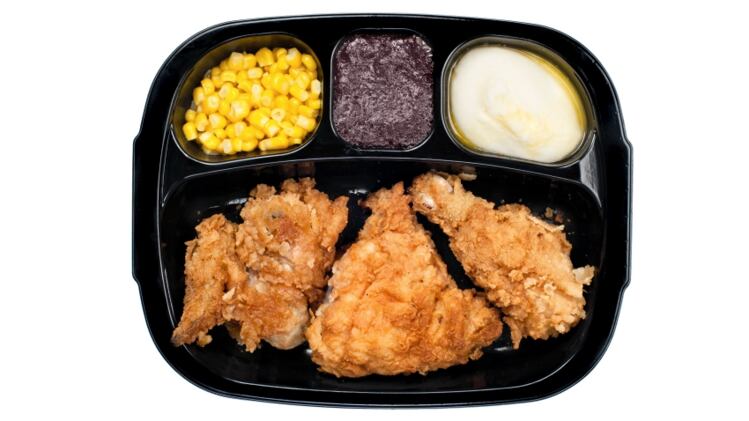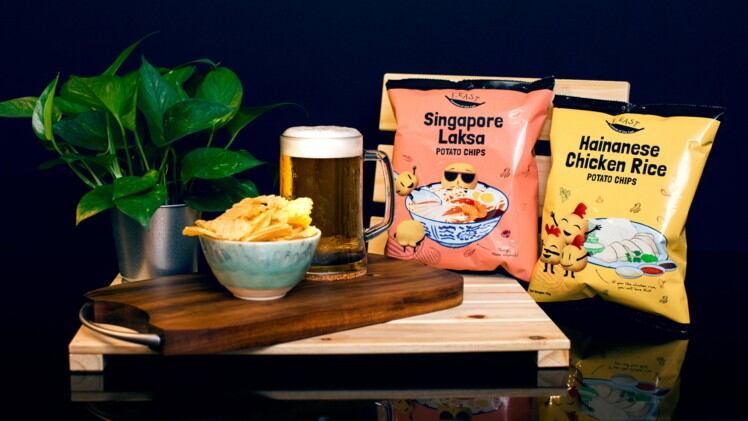Plastic packaging reduction and management
Given both the ban by China on plastic waste imports earlier this year as well as rising consumer awareness of sustainability, plastic packaging reduction has become an increasingly important trend in the Asia Pacific region moving into 2019.
Many major F&B brands have put goals and commitments into place in response to this trend. PepsiCo is one of these, with its Performance with Purpose 2025 goal that aims to design all of its packaging to be recyclable, compostable or biodegradable amongst other things.
Within the APAC region, PepsiCo has unveiled a pilot in India for the ‘first-ever compostable packaging’ for some variants of its snack products.
“The new packaging, developed by PepsiCo R&D, is bio-based, made from plant-based material and 100% compostable,” said PepsiCo Head of Agriculture, Asia, Middle East and North Africa, Nishchint Bhatia.
“[This] means that these packets can be disposed with regular food waste, and will decompose at industrial composting sites.”
Bhatia added that popular variants of PepsiCo’s Lay’s and Kurkure will be available in the eco-friendly packaging across its sales touchpoints at the Indira Gandhi International Airport Terminal 3 in New Delhi via the pilot.
“Through this pilot, we aim to influence and study consumer behaviour, as well as monitor the waste management channel in a controlled environment,” he added.
Coca-Cola also has a global goal relevant to this trend: its World Without Waste goal, which aims to collect and recycle the equivalent of every bottle or can it sells globally by 2030.
“Our Asia Pacific consumers care about our planet. They want and expect companies like ours to be leaders and help make a litter-free world possible,” said James Quincey, Coca-Cola president and CEO.
The beverage giant added that Asia is home to the top five countries that are key in addressing the difficult challenge of handling marine plastic, making this goal exceptionally important for the region in the coming year.
“If left unchecked, plastic waste will slowly choke our oceans and waterways [which] presents clear dangers to marine life, [and] will likely have a broader impact beyond wildlife,” Quincey added.
Sugar reduction and reformulation
Sugar and sugar reduction has been one of the most-discussed topics in the APAC food and beverage industry this year, and is all set to continue as a trend into the coming year, especially with more upcoming talk of sugar taxes in the region.
In Australia, the beverage industry as a whole announced a pledge committing to a 20% reduction in sugar across the board by 2025.
“It’s a landmark commitment, and a sign of the beverage industry’s awareness that we have a crucial role to play,” said AusBev CEO Geoff Parker.
“The industry has also made critical moves to reduce sugar intake in the country, by offering greater choices for Australians with less/no sugar as well as different pack and container sizes.”
The pledge currently comprises big beverage brand names such as Coca-Cola, PepsiCo, and Asahi, with more expected to come in 2019.
In South East Asia, Coca-Cola Singapore has also joined the sugar reduction crusade with a commitment to reduce the average sugar content in its drinks by 10% by 2020.
“This new commitment comes on top of our commitment, together with the other top beverage manufacturers in Singapore, to reduce the sugar content in all our drinks here to 12 per cent and below by 2020,” said Tony Del Rosario, Group General Manager, Coca-Cola Singapore, Malaysia, Vietnam, Cambodia and Myanmar.
The company will also continue efforts to offer more low/no-sugar added drinks, up its reformulation efforts and provide smaller, more convenient packages in the near future.
To highlight reduced sugar in products, firms are also paying more attention to front-of-pack labelling and marketing.
Mars Wrigley Confectionery said it was providing clear front-of-pack labelling to help consumers make better choices.
“We are supporting government proposals to declare added sugar on nutrition labels to enable consumers to make smart choices. We also adhere to a strict marketing code that refrains from marketing to children under 12 years of age,” said Ehab Abou-Oaf, regional president of Mars (Asia-Australia, Middle East & Africa).
Locally-sourced ingredients
Using locally-sourced ingredients to manufacture products is another rapidly-emerging F&B trend, targeting sustainability, local economy support and many other benefits.
PepsiCo is a leader in this area, with related programmes in place across Australia, India, China, Pakistan, Thailand and Vietnam.
“While PepsiCo is an international company, we operate like a local business in the countries where we work. This means hiring local people, sourcing local ingredients, and manufacturing our food and beverages locally where possible,” said Bhatia.
“By sourcing locally, we support local farmers and local industries; and help to create jobs and improve the livelihoods of communities.
“It also makes good business sense. It is often cost-effective, reduces environmental impacts associated with transport, and raw produce is fresher due to shorter transport times.”
The main ingredient that PepsiCo sources locally is potatoes, which it uses for its Lay’s potato chips and other snacks across all six countries.
“100% of the potatoes we use to make our snacks in India, Australia and Pakistan are grown locally. In Thailand and Vietnam, this percentage is 70%,” Bhatia added.
PepsiCo aims to sustainably source all of its direct agricultural raw materials by 2020; and to sustainably source its non-direct major agricultural raw material ingredients by 2025.
At the heart of this is its Sustainability Farming Programme (SFP), which is operated in 38 countries and involved over 40,000 farmers globally.
“The SFP aims to improve crop yields and growers’ livelihoods, increase environmentally responsible practices and advance respect for workers’ human rights,” said Bhatia.
“We help farmers with training and expertise, assured buy-back or produce at pre-agreed prices free from market volatility, high quality planting material, facilitating crop/weather risk insurance and more.”
Amongst its success stories include PepsiCo China’s agreement with the Ministry of Agriculture to accelerate sustainable potato farming.
“As we work to meet our Performance with Purpose goal to sustainably source 100% of our direct agricultural raw materials by 2020, we will continue to invest in expanding the programme,” said Bhatia.
“For example, in India, PepsiCo is investing over US$5 million from now through to 2020 to scale its SFPs across the country, and in Vietnam, we plan to triple potato yields to 30,000 tons over the next five years.”
Plant-based protein
The emphasis on a healthier diet and food sustainability has led to the rise of plant-based protein in APAC.
Leading industry players, including JUST and Impossible Foods, said they expected to see an accelerated business growth in Asia this year.
For Impossible Foods, its plant-based meat was made available to over 100 restaurants in Hong Kong and Macau just within eight months of its launch, chief strategy officer Nick Halla said.
“Throughout Asia, we have received interest from customers and consumers daily. We believe this is driven by the delicious experience of Impossible’s dishes and the growing awareness of environmental and health challenges of the animal food systems,” Halla said.
With a successful start in Hong Kong and Macau, he revealed that the firm would be launching its products in Singapore this year.
Another plant-based product firm, JUST, also launched its plant-based egg in Hong Kong’s Green Common outlets and in Singapore’s food service outlets last year.
About 250 egg sandwiches were sold out in 30mins it launched its plant-based egg – JUST Egg in Singapore’s Grand Hyatt Hotel during Nov 1 last year.
Moving forward, JUST will be entering the Chinese market, with products made available via the e-commerce platforms in the first quarter of this year.
“As far as our egg goes, we are going to scale it all across Asia, we are going to be setting up infrastructure with our manufacturing partners, we are going to get out to more consumers. We will be going to multiple channels, food services, e-commerce, offline and online,” Josh Tetrick, CEO of JUST said.
Rise of social commerce
China is the most advanced e-commerce market globally.
Its e-commerce trade volume last year reached RMB$29.16 trillion (USD$4.5 trillion), up 11.7 % YoY, according to China's Ministry of Commerce, and it shows no signs of slowing.
Asked how will e-commerce consumption in China progress, a spokeswoman from Mengniu told us that e-commerce would continue to gravitate towards “mobility, social media, precision, and advancing into the 4th and 5th tier cities.
“Online shopping took on a simple route in its initial stage. (Consumers) will first search, compare, purchase, then leave their reviews and feedback,” she said.
“However, at present, contact marketing, source of information, and (retail) channels are rapidly on the rise. The new generation of online shoppers will find themselves in a more complicated, fragmented, and ever-changing e-commerce environment.”
For instance, some Chinese companies have moved beyond e-commerce websites and have allocated certain products that are exclusive for sale on WeChat.
Both Mengniu and beverage firm Wahaha are forerunners in this area.
A Mengniu spokeswoman said that the firm has ventured into social media e-commerce this year.
It has since introduced products that are exclusively for sale via the WeChat channel, examples include a collagen peptide and fibre shake milk.
“Social media e-commerce places great emphasis on the individuals. It taps on the opportunities to connect individuals and products (via social media platforms) and provides an entirely different shopping experience for the consumers.
“Mengniu has observed multiple opportunities and challenges arising from the rapid progress of mobile internet marketing […] We are integrating both marketing and product supply chain. We are also cultivating environments that are conducive for product marketing. Through these methods, we are creating a unique brand culture and market worth.”
Despite being a lucrative retail channel, Mengniu said it would nonetheless pay attention to its traditional retail channels as well.




